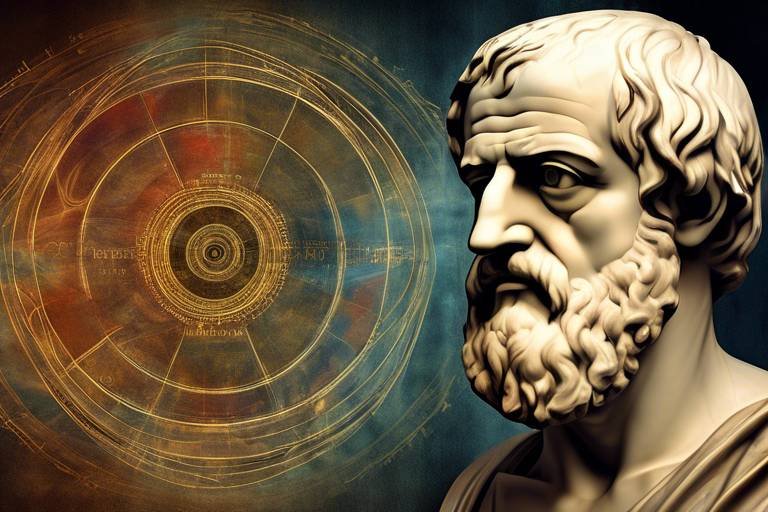The Importance of Rhetoric in Philosophy
Rhetoric is not just a fancy term thrown around in academic circles; it is the very lifeblood of philosophical discourse. Imagine attending a lecture where ideas are presented in a dull, monotonous manner—would you stay engaged? Probably not! This illustrates the crucial role rhetoric plays in making philosophical arguments not only compelling but also accessible to a wider audience. It’s like the seasoning in a dish; without it, even the most profound ideas can taste bland and uninviting.
Throughout history, rhetoric has served as a bridge between complex philosophical ideas and the public. When philosophers articulate their thoughts with clarity and persuasion, they invite others to join the conversation. This engagement is essential for the evolution of ideas, as it encourages debate, reflection, and sometimes even revolution. Think about it: how many great movements in history were sparked by a powerful speech? Rhetoric has the power to ignite change, and that’s why it holds such a vital place in philosophy.
Moreover, rhetoric is not just about persuasion; it’s also about understanding. When we study rhetoric, we learn to appreciate the nuances of argumentation, the subtleties of language, and the emotional undercurrents that drive human communication. It equips us with the tools to dissect arguments critically, enabling us to engage thoughtfully with the ideas presented to us. In a world overflowing with information, the ability to discern effective rhetoric is more important than ever. It’s like having a compass in a dense forest of conflicting opinions.
In essence, rhetoric in philosophy is akin to a dance—where every move has significance, every pause has weight, and every gesture conveys meaning. The interplay between speaker and audience creates a dynamic environment where ideas can flourish. Without this interaction, philosophy would remain an isolated endeavor, confined to the walls of academia. Thus, the importance of rhetoric in philosophy cannot be overstated; it is the catalyst for dialogue, the spark for innovation, and the foundation for ethical discourse.
- What is rhetoric? Rhetoric is the art of persuasion through effective communication. It encompasses various techniques and strategies that enhance the delivery of ideas.
- Why is rhetoric important in philosophy? Rhetoric helps to articulate complex ideas clearly and persuasively, fostering engagement and debate in philosophical discussions.
- How has rhetoric evolved over time? Rhetoric has deep historical roots, evolving through the contributions of various philosophers and rhetoricians from ancient times to the modern era.
- What are Aristotle's contributions to rhetoric? Aristotle laid the groundwork for the study of rhetoric, introducing key concepts such as the three appeals: ethos, pathos, and logos.
- What are the ethical implications of rhetoric? The use of rhetoric raises questions about manipulation versus genuine persuasion, highlighting the responsibility of speakers to use their skills ethically.

The Definition of Rhetoric
Understanding rhetoric is essential for grasping its significance in philosophy. At its core, rhetoric is the art of persuasion, a skill that transcends mere words. It involves the ability to communicate ideas effectively, engaging an audience not just with logic, but with emotion and credibility. Rhetoric is not merely about what is said; it’s about how it’s said and the impact it has on the listener. Think of it as the bridge connecting thoughts and emotions, allowing for a deeper understanding of complex ideas.
Rhetoric can be broken down into several key components that enhance its effectiveness:
- Ethos: This refers to the credibility or ethical appeal of the speaker. A speaker with strong ethos is perceived as trustworthy and knowledgeable, which enhances their persuasive power.
- Pathos: This emotional appeal aims to persuade the audience by appealing to their feelings. Whether it’s joy, anger, or sadness, evoking emotions can significantly impact how a message is received.
- Logos: The logical appeal focuses on reason and evidence. It involves the use of data, facts, and logical arguments to persuade the audience.
These components work in harmony to create a compelling argument. Rhetoric is not confined to speeches or written texts; it permeates everyday conversations, advertisements, and even social media interactions. For instance, when a politician addresses the public, they don’t just share facts; they weave in personal stories and emotional appeals to connect with their audience on a deeper level.
Moreover, the importance of rhetoric extends beyond just persuasion. It is a vital tool for effective communication in various fields, including law, education, and politics. In a courtroom, for example, a lawyer must not only present evidence but also persuade the jury through a combination of ethos, pathos, and logos. Similarly, educators use rhetoric to inspire students, fostering an environment where critical thinking and open dialogue can flourish.
In essence, rhetoric serves as the backbone of philosophical discourse. It shapes our understanding of ideas and influences the way we interact with one another. By mastering the art of rhetoric, individuals can not only articulate their thoughts more clearly but also engage in meaningful conversations that contribute to the evolution of ideas throughout history.

Historical Context of Rhetoric
Rhetoric is not just a modern invention; its roots stretch deep into the annals of history, intertwining with the very fabric of human communication. Understanding the historical context of rhetoric helps us appreciate its evolution and significance in philosophical discourse. From the bustling streets of ancient Athens to the grand halls of Roman orators, rhetoric has been a vital tool for persuasion, debate, and the dissemination of ideas.
In ancient Greece, rhetoric emerged as an essential skill for public life, particularly in the democratic city-state of Athens. Citizens were expected to engage in public speaking, whether to persuade their peers in the assembly or to defend themselves in court. Figures like Socrates, Plato, and Aristotle recognized the power of rhetoric, albeit with differing views on its ethical implications. While Socrates often critiqued the sophists for their perceived manipulation of truth, Plato sought to elevate rhetoric by linking it to the pursuit of justice and knowledge.
Aristotle, however, took a more systematic approach. He not only defined rhetoric but also categorized it into distinct forms and techniques. His seminal work, Rhetoric, laid the groundwork for understanding how language can influence thought and action. Aristotle’s insights into the structure of arguments and the role of the speaker's character (ethos), emotional appeal (pathos), and logical reasoning (logos) are still relevant today.
The Roman era saw rhetoric flourish further, with figures like Cicero and Quintilian making significant contributions. Cicero’s orations captivated audiences with their eloquence and persuasive power, while Quintilian emphasized the importance of a moral framework in rhetorical practice. This period also marked the transition of rhetoric from a purely civic tool to a form of art, blending aesthetics with persuasion.
As we moved into the Middle Ages, rhetoric took on new dimensions. The rise of Christianity brought about a shift in focus, where rhetoric was employed not only in public discourse but also in religious contexts. Preachers became skilled orators, using rhetoric to convey spiritual truths and inspire faith among their congregations.
During the Renaissance, the revival of classical texts reignited interest in rhetoric. Scholars began to explore ancient rhetorical techniques, leading to a resurgence of public speaking and debate. The invention of the printing press further democratized access to rhetorical knowledge, allowing ideas to spread rapidly across Europe and inspiring movements like the Reformation.
In the modern era, rhetoric continues to evolve, adapting to the changing landscape of communication. The advent of digital media has transformed how we engage with rhetoric, making it more accessible yet also more complex. Today, rhetoric is not confined to speeches and essays; it permeates social media, advertising, and even our everyday conversations. As philosophers and communicators navigate this new terrain, the historical lessons of rhetoric remain invaluable.
In summary, the historical context of rhetoric reveals a rich tapestry of thought and practice that has shaped human communication for centuries. Understanding this evolution not only enhances our appreciation of rhetoric's role in philosophy but also equips us with the tools to engage effectively in contemporary discourse.
- What is rhetoric? Rhetoric is the art of persuasion through effective communication, involving techniques that influence audiences.
- Why is rhetoric important in philosophy? Rhetoric is crucial in philosophy as it shapes arguments, influences public discourse, and aids in the dissemination of ideas.
- Who were the key figures in the history of rhetoric? Key figures include Aristotle, Cicero, and Quintilian, each contributing significantly to the study and practice of rhetoric.
- How has rhetoric evolved over time? Rhetoric has evolved from ancient public speaking to encompass various forms of communication, including digital media.

Aristotle's Contributions
When we delve into the realm of rhetoric, it’s impossible to overlook the profound impact that Aristotle has had on this field. His work in the 4th century BCE not only laid the groundwork for the study of rhetoric but also shaped the way we understand persuasion and argumentation today. Aristotle viewed rhetoric as an essential skill, one that transcended mere speaking and writing; he believed it was a critical component of effective communication in all areas of life.
Aristotle's major work, Rhetoric, is a comprehensive examination of the art of persuasion. In this seminal text, he defines rhetoric as "the faculty of observing in any given case the available means of persuasion." This definition highlights rhetoric's practical nature, emphasizing that it is not just about eloquence but about understanding and effectively utilizing various strategies to influence an audience. Aristotle categorized rhetoric into three distinct genres: deliberative, judicial, and epideictic, each serving different purposes and contexts.
One of Aristotle's most significant contributions is his exploration of the three appeals—ethos, pathos, and logos. These appeals are fundamental to constructing persuasive arguments:
- Ethos refers to the credibility or ethical appeal of the speaker. Aristotle argued that a speaker must establish trust and authority to persuade effectively.
- Pathos is the emotional appeal. It involves evoking feelings in the audience to sway their opinions or actions.
- Logos is the logical appeal, which relies on reasoning and evidence to support arguments.
These three appeals are not just theoretical concepts; they are practical tools that can be utilized in various forms of communication, from political speeches to everyday conversations. Aristotle's emphasis on the importance of understanding the audience’s perspective and tailoring arguments accordingly is a lesson that remains relevant in today’s discourse.
Moreover, Aristotle saw rhetoric as a vital educational tool. He believed that teaching rhetoric was essential for developing critical thinking and communication skills. By mastering rhetoric, individuals could engage more effectively in civic life, participate in debates, and contribute to society. This perspective underscores the idea that rhetoric is not merely about persuasion; it’s about fostering an informed and engaged citizenry.
In summary, Aristotle's contributions to the study of rhetoric are immense and enduring. His insights into the nature of persuasion, the role of the speaker, and the importance of audience engagement continue to influence both philosophical thought and practical communication today. Whether in the classroom or the public sphere, Aristotle's legacy serves as a reminder of the power of words and the art of persuasion.
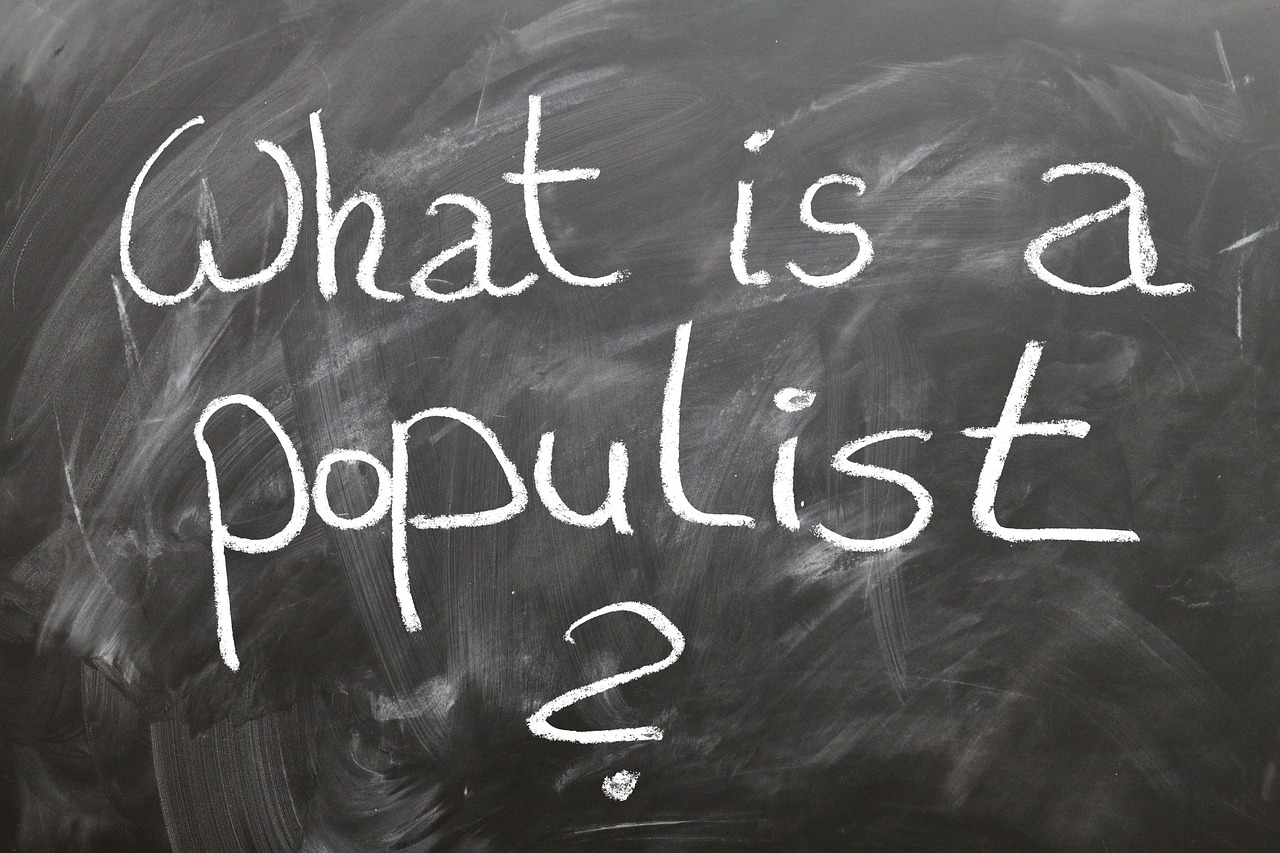
The Three Appeals
When we dive into the world of rhetoric, one name that stands tall is Aristotle. His insights into persuasive communication have not only stood the test of time but continue to shape how we engage in discourse today. At the heart of Aristotle's rhetoric are three pivotal appeals: ethos, pathos, and logos. Each of these appeals plays a crucial role in how arguments are structured and how effectively they resonate with an audience.
Ethos refers to the credibility or ethical appeal of the speaker. It’s all about establishing trust and authority. Imagine you're at a medical seminar, and the speaker is a renowned surgeon with years of experience; you’re more likely to believe their claims about a new procedure than if the speaker were a novice. Ethos is built through the speaker's qualifications, reputation, and even their character. It’s the personal touch that makes the audience feel secure in the information being presented.
Next up is pathos, which taps into the emotional aspects of persuasion. This appeal is all about stirring feelings—whether it's joy, anger, sadness, or hope. Think about a charity campaign that shares heart-wrenching stories about those in need. By evoking emotions, the speaker can motivate the audience to take action, whether that means donating money or volunteering time. Pathos creates a connection that can be incredibly powerful, often leading to memorable and impactful moments in communication.
Finally, we have logos, the logical appeal. This is where facts, statistics, and logical reasoning come into play. When a speaker uses logos, they present a well-structured argument backed by evidence. For instance, in a debate about climate change, citing scientific data and studies can bolster the argument significantly. Logos engages the audience's rational side, making them more likely to accept the argument based on sound reasoning.
In practice, effective rhetoric often combines all three appeals to create a balanced and persuasive argument. For example, a political speech might start with a personal story (pathos), followed by data on economic growth (logos), and conclude with a call for unity based on the speaker's experience and integrity (ethos). This blend not only captivates the audience but also reinforces the message being conveyed.
To summarize, the three appeals of rhetoric—ethos, pathos, and logos—are essential tools for anyone looking to persuade effectively. They help shape arguments in a way that resonates with audiences on multiple levels, making the communication not just informative but also engaging and compelling.
- What is the most important appeal in rhetoric? Each appeal serves a unique purpose; however, the effectiveness of an argument often hinges on how well they are combined.
- Can rhetoric be used unethically? Yes, rhetoric can be manipulated to deceive or mislead, which is why understanding the ethical implications is crucial.
- How can I improve my rhetorical skills? Practice is key! Engage in debates, write persuasive essays, and study great speeches to understand how different appeals are used.

Rhetoric as a Teaching Tool
Rhetoric is not just about persuasion; it is a powerful teaching tool that has the potential to transform the way students engage with ideas and communicate effectively. Aristotle recognized this dual nature of rhetoric, viewing it as essential for developing critical thinking skills and fostering intellectual growth. By learning the art of rhetoric, students can better articulate their thoughts, analyze arguments, and engage in meaningful dialogues. This is especially important in today’s world, where the ability to communicate clearly can make all the difference.
One of the key benefits of teaching rhetoric is its ability to enhance critical thinking. When students are trained in rhetorical techniques, they learn to dissect arguments, identify logical fallacies, and construct their own persuasive narratives. This analytical approach encourages them to question the validity of information and become discerning consumers of knowledge. Imagine a classroom where students are not just passive recipients of information, but active participants in the learning process, using their rhetorical skills to challenge each other’s ideas and refine their own understanding.
Moreover, rhetoric equips students with the skills needed to navigate complex social interactions. In a world filled with diverse opinions and viewpoints, the ability to engage in respectful discourse is invaluable. Rhetoric teaches students how to present their ideas compellingly while also listening to opposing arguments with an open mind. This not only fosters a sense of community in the classroom but also prepares students for real-world interactions where collaboration and negotiation are essential.
To illustrate the impact of rhetoric in education, consider the following table that outlines some key rhetorical techniques and their applications in teaching:
| Rhetorical Technique | Application in Teaching |
|---|---|
| Ethos | Establishing credibility and trust in arguments, encouraging students to build their authority. |
| Pathos | Appealing to emotions to create a connection with the audience, enhancing engagement in discussions. |
| Logos | Using logical reasoning and evidence to support claims, promoting analytical thinking. |
Incorporating rhetoric into the curriculum can take various forms. Teachers can design activities that encourage students to practice their rhetorical skills through debates, speeches, and presentations. For example, students might be tasked with defending a controversial position, requiring them to research their topic, anticipate counterarguments, and present their case persuasively. This not only hones their rhetorical abilities but also instills a sense of confidence in their communication skills.
Additionally, rhetoric can be integrated across subjects, from literature to science. In literature classes, students can analyze the rhetorical strategies employed by authors, while in science, they can learn to present their findings in a compelling manner. This interdisciplinary approach not only enriches their learning experience but also demonstrates the relevance of rhetoric in various fields.
Ultimately, teaching rhetoric is about equipping students with the tools they need to navigate an increasingly complex world. By fostering their ability to communicate effectively, think critically, and engage with diverse perspectives, we prepare them not just for academic success, but for life beyond the classroom. Rhetoric, in this sense, becomes a vital skill set for the leaders and thinkers of tomorrow.
- What is the main purpose of teaching rhetoric? The main purpose is to enhance students' communication skills, critical thinking, and ability to engage in meaningful discourse.
- How can rhetoric be applied in everyday life? Rhetoric can be applied in everyday life by improving persuasive communication, enhancing debates, and fostering better understanding in discussions.
- Is rhetoric only about persuasion? No, while persuasion is a key component, rhetoric also encompasses critical thinking, analysis, and effective communication.
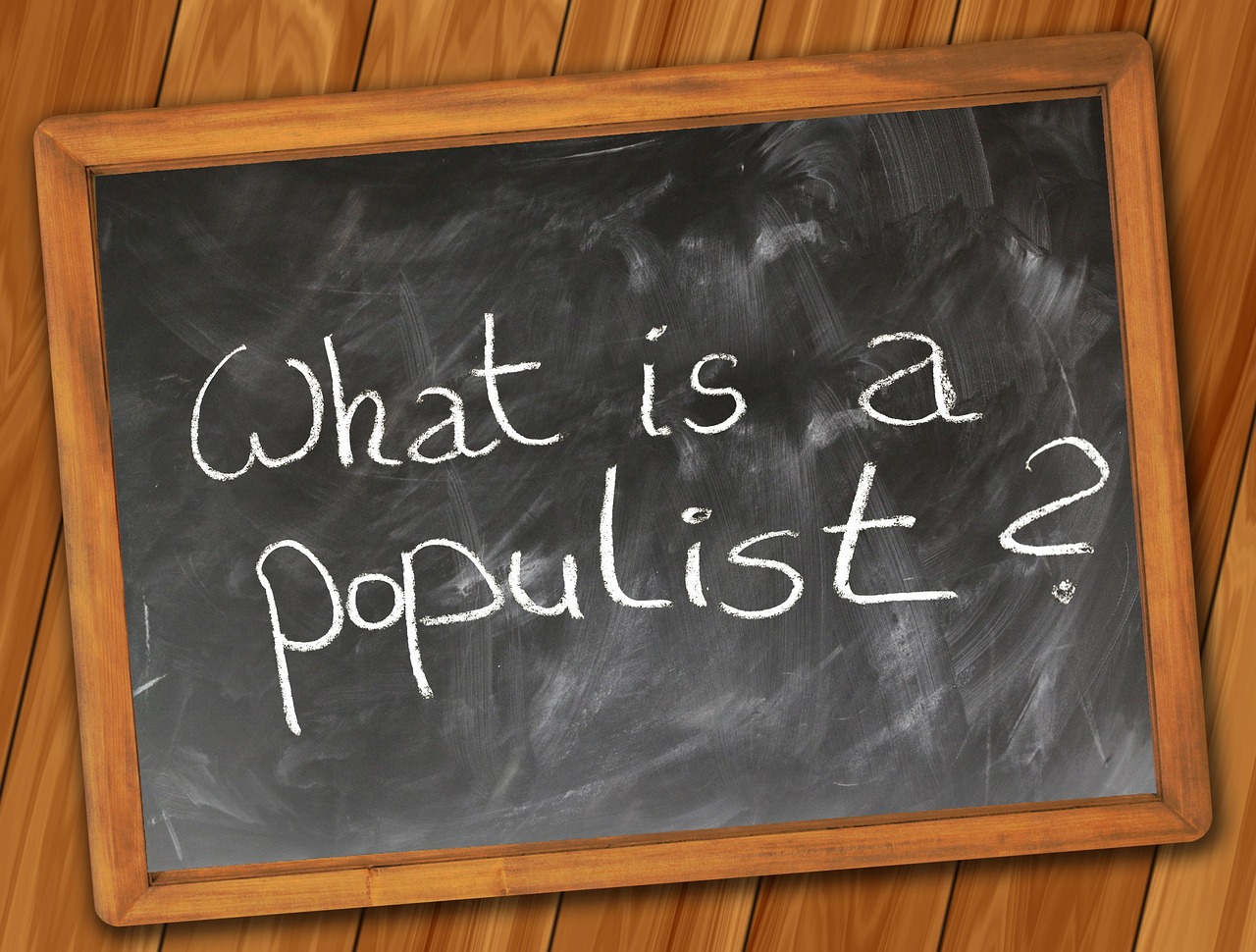
Rhetoric in Modern Philosophy
In the contemporary landscape of philosophy, rhetoric remains a vibrant and essential component of discourse. Philosophers today recognize that effective communication is not just about the clarity of ideas but also about the art of persuasion. Rhetoric, with its rich history and nuanced techniques, empowers philosophers to engage audiences, challenge prevailing norms, and inspire critical thought. It's fascinating to observe how modern philosophers have adapted classical rhetorical strategies to address contemporary issues, making their arguments more compelling and accessible.
One significant aspect of rhetoric in modern philosophy is its role in public discourse. Philosophers are increasingly called upon to articulate complex ideas in ways that resonate with the general public. This is particularly evident in debates surrounding ethics, politics, and social justice. For instance, when discussing topics like climate change or human rights, the ability to persuade is crucial. Philosophers utilize rhetorical techniques to frame these issues in relatable terms, appealing to both emotional and logical aspects of their audience's understanding.
Moreover, the rise of social media has transformed the way philosophical rhetoric is practiced. In a world where information spreads rapidly, the need for concise and impactful messaging has never been greater. Philosophers now engage with diverse audiences through platforms like Twitter, Facebook, and blogs. Here, the traditional forms of rhetoric are often condensed into bite-sized arguments that still retain their persuasive power. This shift raises interesting questions about the balance between depth and accessibility in philosophical discussions.
To illustrate the current landscape, we can look at several key areas where rhetoric plays a pivotal role:
- Political Philosophy: Rhetoric shapes political arguments, influencing public opinion and policy decisions.
- Ethics: Philosophers use rhetoric to discuss moral dilemmas, making complex ethical theories relatable to everyday life.
- Social Justice: Rhetorical strategies are employed to advocate for marginalized voices, pushing for systemic change.
In essence, rhetoric in modern philosophy is not merely a tool for persuasion; it is a bridge that connects philosophical ideas with the lived experiences of individuals. By engaging with audiences through effective rhetorical strategies, philosophers can foster a deeper understanding of critical issues, encouraging people to reflect on their beliefs and values. This dynamic interplay between rhetoric and philosophy underscores the importance of communication in shaping thought and driving societal progress.
As we move forward, the challenge for philosophers will be to maintain the integrity of their arguments while adapting to new modes of communication. The evolution of rhetoric in philosophy reflects broader societal changes, and by embracing these shifts, philosophers can continue to play a vital role in the discourse that shapes our world.
- What is the role of rhetoric in philosophy? Rhetoric helps philosophers articulate their ideas persuasively, making complex concepts more accessible and engaging to audiences.
- How has modern technology influenced rhetorical practices? Social media and digital communication have necessitated shorter, more impactful messages, allowing philosophers to reach wider audiences.
- Are there ethical concerns related to the use of rhetoric? Yes, the line between persuasion and manipulation can be thin, raising important ethical questions about how rhetoric is employed.

Rhetoric and Ethical Considerations
When we dive into the world of rhetoric, it's impossible to ignore the ethical implications that come along with it. Rhetoric is not just about crafting compelling arguments; it’s also about the responsibility that comes with influencing others. Philosophers and rhetoricians alike must grapple with questions like: Are we using our skills to enlighten or to deceive? In a world where information is abundant and often misleading, the ethical considerations surrounding rhetoric have never been more critical.
At its core, rhetoric can be a double-edged sword. On one hand, it empowers individuals to express their ideas persuasively, fostering communication and understanding. On the other hand, it can be exploited to manipulate audiences, leading to misinformation and manipulation. This dichotomy raises the question: how do we draw the line between ethical persuasion and unethical manipulation?
To navigate these murky waters, we must first understand the distinction between manipulation and genuine persuasion. Manipulation often involves coercive tactics that prioritize the persuader's agenda over the audience's well-being. It’s like a magician performing a trick; the audience is captivated but ultimately deceived. In contrast, genuine persuasion aims to engage the audience's reasoning and emotions ethically, inviting them to arrive at a conclusion that resonates with their values and beliefs.
Here are some key considerations to keep in mind when evaluating the ethics of rhetoric:
- Intent: What is the purpose behind the rhetoric? Is it to inform, inspire, or deceive?
- Transparency: Are the methods used clear and honest? Are the sources credible?
- Impact: What are the potential consequences of the persuasive message? Could it harm individuals or society?
Moreover, the ethical use of rhetoric is particularly evident in social movements, where it can be a powerful force for change. Think about the speeches that have sparked revolutions or the writings that have shifted public opinion. These instances showcase how rhetoric, employed ethically, can mobilize communities and inspire social transformation. However, it is essential for those who wield this power to remain vigilant and accountable, ensuring that their rhetoric serves the greater good rather than personal interests.
Ultimately, as we engage in rhetorical practices, we must cultivate a sense of ethical awareness. This means asking ourselves tough questions about our motivations and the potential repercussions of our words. By doing so, we can harness the power of rhetoric to foster understanding and promote positive change, rather than allowing it to become a tool for manipulation and deceit.
- What is the role of ethics in rhetoric?
Ethics in rhetoric involves understanding the moral implications of persuasive communication and ensuring that the intent is to inform and inspire rather than deceive. - How can one differentiate between manipulation and genuine persuasion?
Manipulation often prioritizes the persuader's agenda and uses coercive tactics, while genuine persuasion respects the audience's autonomy and encourages informed decision-making. - Can rhetoric be used for social good?
Absolutely! When used ethically, rhetoric can mobilize communities and inspire social change, as seen in various historical movements.
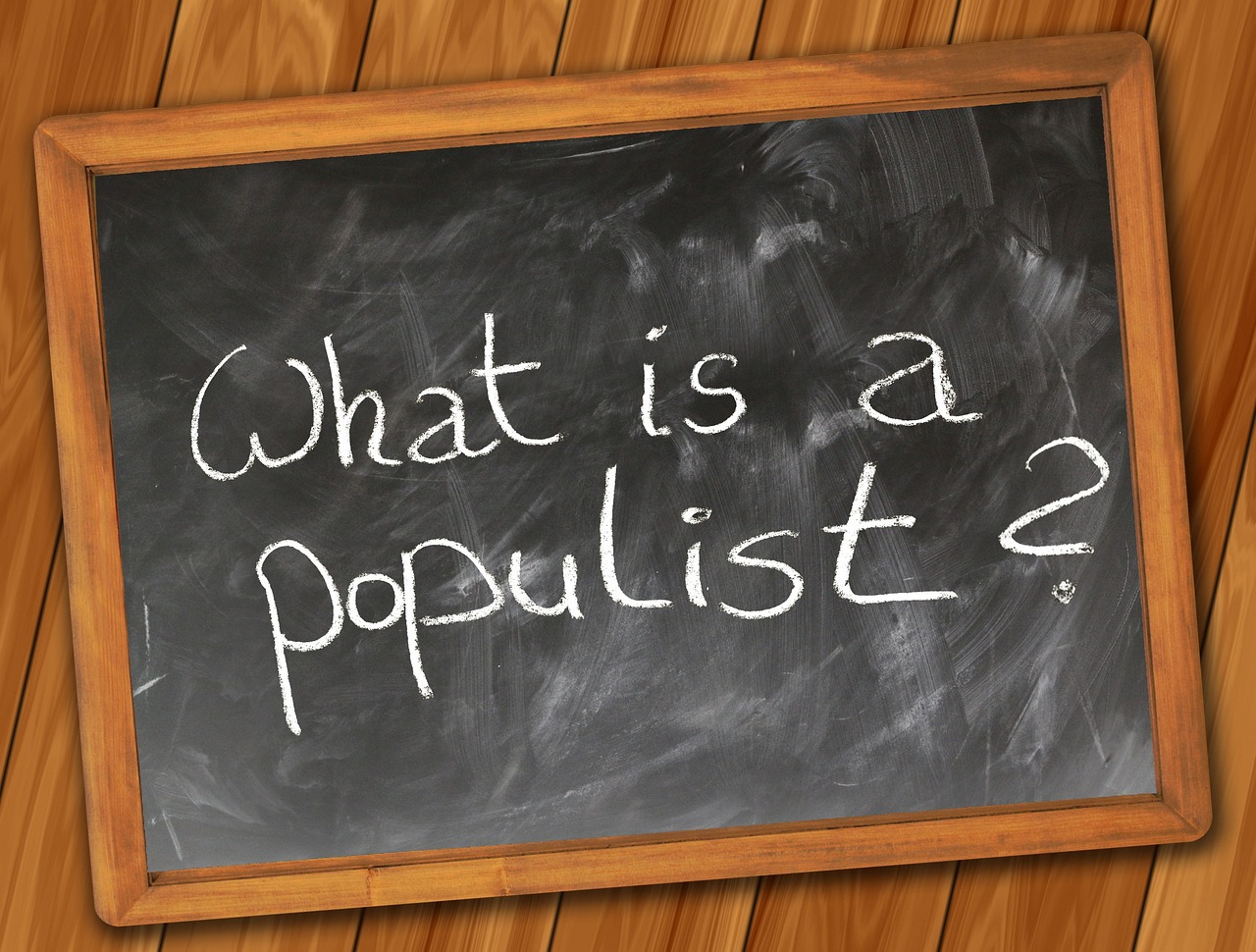
Manipulation vs. Persuasion
When it comes to the art of rhetoric, understanding the fine line between manipulation and persuasion is crucial. Both are powerful tools in the hands of a speaker or writer, but they can lead to vastly different outcomes. Imagine you're at a carnival, where the barker tries to entice you into playing a game. If they use genuine enthusiasm and highlight the fun you could have, that’s persuasion. However, if they twist the truth, exaggerate the odds of winning, or prey on your insecurities, that’s manipulation. The key difference lies in the intent and the ethics behind these techniques.
Persuasion is about influence through logical reasoning, emotional connection, and ethical appeal. It invites the audience to consider a viewpoint or take action based on clear, honest information. On the other hand, manipulation often involves deceit, coercion, or emotional exploitation to achieve an end. This distinction is not just academic; it has real-world implications, especially in fields like politics, marketing, and even personal relationships. The ethical considerations are significant: while persuasion can foster understanding and dialogue, manipulation can lead to distrust and division.
To better illustrate this point, let’s look at a few examples of how these two approaches can manifest:
| Aspect | Persuasion | Manipulation |
|---|---|---|
| Intent | To inform and engage | To deceive and control |
| Method | Logical arguments, emotional appeals | Exaggeration, fear-mongering |
| Outcome | Mutual understanding | Distrust and resentment |
In the realm of philosophy, the ethical implications of rhetoric cannot be overstated. Philosophers have a responsibility to wield their rhetorical skills judiciously. When engaging in public discourse, they must ask themselves: Are they seeking to enlighten or to manipulate? The responsibility is profound, as the impact of their words can shape societal norms and values. This is especially true in the context of social movements, where rhetoric can either empower communities or exploit vulnerabilities.
Ultimately, the challenge lies in ensuring that rhetoric serves as a bridge for understanding rather than a barrier for manipulation. The next time you find yourself swayed by an argument, take a moment to reflect: Is this persuasion, or is it manipulation? This awareness can help cultivate a more discerning audience, capable of navigating the complexities of communication in our increasingly interconnected world.
- What is the main difference between manipulation and persuasion? Manipulation often involves deceit or coercion, aiming to control behavior without the audience's informed consent, while persuasion seeks to influence through honest dialogue and ethical appeal.
- Can manipulation ever be ethical? Generally, manipulation is considered unethical as it undermines trust and autonomy. However, some argue that in certain contexts, such as marketing, it can be justified if it leads to a positive outcome.
- How can I recognize manipulation in communication? Look for signs of exaggeration, emotional exploitation, or pressure tactics that aim to bypass logical reasoning.
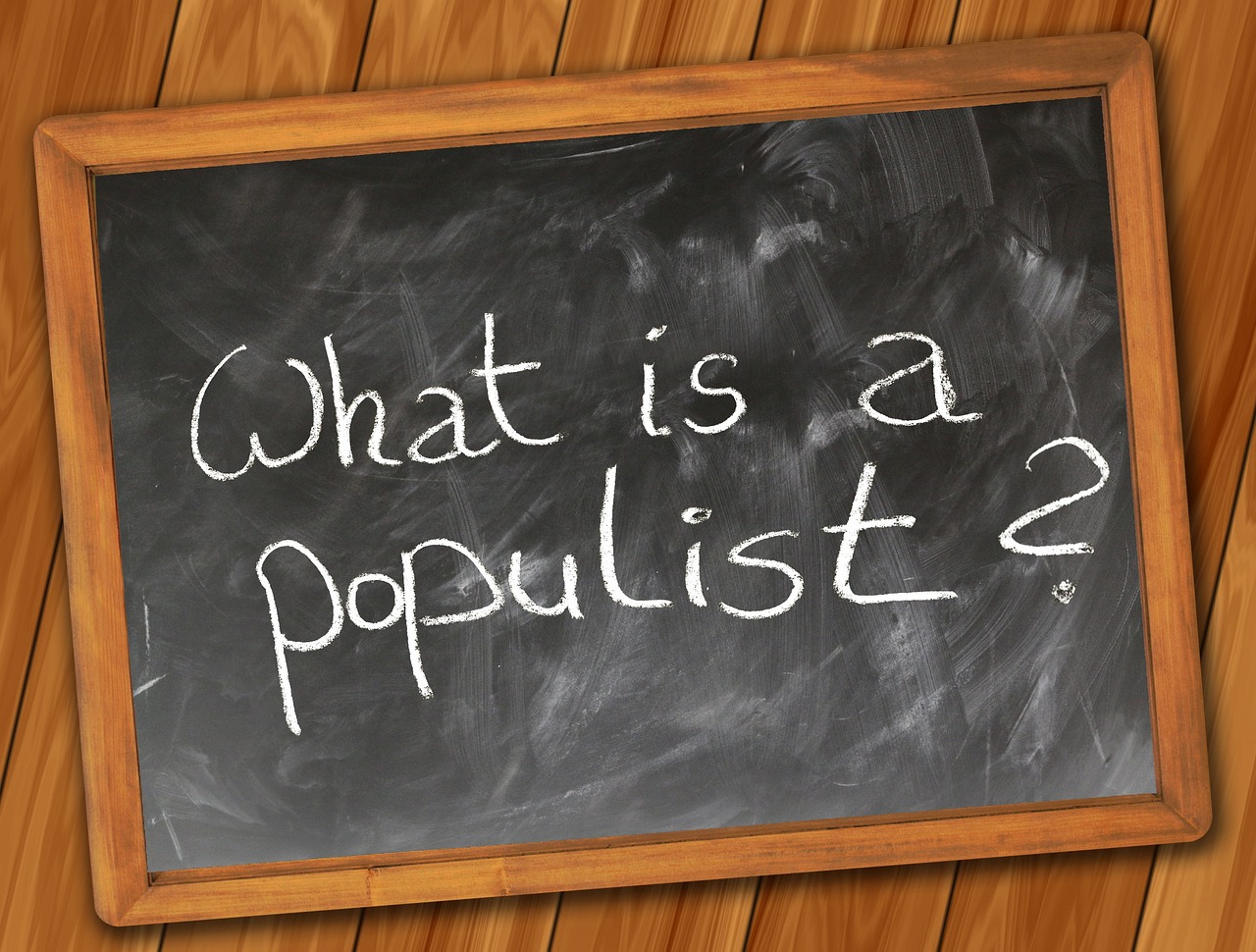
Rhetoric in Social Movements
Rhetoric has always been a powerful catalyst for social change, acting as the lifeblood of movements that seek to challenge the status quo. Think of rhetoric as the fuel that ignites the flames of passion and purpose in the hearts of those who yearn for change. It is not merely about persuasive speeches or catchy slogans; it is about weaving a narrative that resonates deeply with people's emotions, values, and aspirations. The ability to articulate a vision for a better future can inspire individuals to join the cause and mobilize communities toward collective action.
Throughout history, we have witnessed the profound impact of rhetoric in various social movements. From the civil rights movement to environmental activism, the words of leaders and advocates have often been the rallying cry that unites people in their pursuit of justice and equality. For instance, Martin Luther King Jr.'s iconic "I Have a Dream" speech is a prime example of how rhetoric can evoke strong emotions and foster a sense of shared purpose among diverse individuals. His use of vivid imagery and repetition created a powerful emotional connection, making the struggle for civil rights not just a political issue, but a deeply personal one.
Moreover, rhetoric can serve as a double-edged sword. While it can inspire and mobilize, it can also be used to manipulate and deceive. In the age of social media, the rapid dissemination of messages has made it easier for persuasive rhetoric to shape public opinion, sometimes with dangerous consequences. The challenge lies in discerning between rhetoric that promotes genuine social change and that which seeks to exploit vulnerabilities for selfish gain. As we navigate this complex landscape, it is crucial to critically evaluate the messages we encounter and understand the motivations behind them.
Rhetoric's role in social movements can be categorized into several key functions:
- Mobilization: Rhetoric serves to rally individuals around a common cause, creating a sense of urgency and collective identity.
- Awareness: It raises awareness about social injustices and issues that may have been overlooked, prompting dialogue and discussion.
- Empowerment: Effective rhetoric empowers individuals by giving voice to their struggles, validating their experiences, and encouraging them to take action.
- Vision: It articulates a clear vision of the desired change, helping individuals visualize what a better future might look like.
In conclusion, the power of rhetoric in social movements cannot be overstated. It is an essential tool for fostering connection, inspiring action, and driving change. As we continue to engage with the pressing social issues of our time, let us remember the importance of rhetoric in shaping our collective narrative. By harnessing its potential responsibly, we can contribute to a more just and equitable society.
- What is the role of rhetoric in social movements? Rhetoric plays a crucial role in mobilizing individuals, raising awareness, empowering communities, and articulating a vision for change.
- How can rhetoric be both positive and negative? While rhetoric can inspire and unite, it can also be used to manipulate or deceive, especially in the context of social media and misinformation.
- Can rhetoric influence public opinion? Yes, effective rhetoric can significantly shape public opinion, often swaying individuals to support a particular cause or movement.
Frequently Asked Questions
- What is rhetoric and why is it important in philosophy?
Rhetoric is the art of persuasion through communication, and it's crucial in philosophy because it shapes how ideas are presented and debated. It helps philosophers articulate their thoughts clearly, making complex ideas more accessible to others.
- How did Aristotle contribute to the study of rhetoric?
Aristotle laid the groundwork for rhetoric by introducing key concepts such as ethos, pathos, and logos. His insights into how these appeals function in arguments continue to influence both philosophical discourse and modern persuasive practices.
- What are the three appeals of rhetoric?
The three appeals, as defined by Aristotle, are ethos (credibility), pathos (emotional appeal), and logos (logical reasoning). Each appeal plays a vital role in crafting persuasive arguments that resonate with audiences on different levels.
- Can rhetoric be used ethically?
Absolutely! While rhetoric can be misused for manipulation, ethical rhetoric focuses on genuine persuasion, aiming to inform and inspire rather than deceive. It's about striking a balance between influence and integrity.
- How does rhetoric influence social movements?
Rhetoric serves as a powerful tool in social movements, helping to mobilize support and articulate demands for change. Philosophical rhetoric has historically inspired action and fostered societal transformation by resonating with people's values and emotions.
- What is the difference between manipulation and persuasion?
Manipulation involves deceit and coercion to achieve a goal, while persuasion seeks to influence others through reasoned arguments and emotional appeal. Understanding this distinction is essential for ethical communication in philosophy and beyond.
- Is rhetoric still relevant in modern philosophy?
Yes, rhetoric remains highly relevant in contemporary philosophy. Philosophers continue to engage with rhetorical techniques to enhance their arguments, influence public discourse, and address pressing societal issues.









